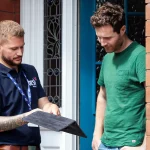New UK Regulatory Regime Begins for Legally Separate Openreach
Ofcom has today confirmed that they’ve formally released BT from their 2005 Undertakings, which among other things means that Openreach is now subject to a different set of regulations and regarded as a “legally separate” company from its parent with its own independent identity, employees and board etc.
The changes stem from Ofcom’s 2016 Strategic Review of Telecommunications (summary), which ruled that Openreach were under-investing in their network, still had an “incentive to make decisions in the interests of BT, rather than BT’s competitors, which can lead to competition problems” and that they had failed to “sufficiently” consult rival ISPs (i.e. those using their network) on future “investment plans that affect them.”
After a long period of negotiation BT and Ofcom eventually reached a voluntary agreement (here). The new deal aimed to boost competition by giving rivals better access to Openreach’s UK network and fostering an independent governance structure, as well as tougher minimum service quality standards, separate branding, new consumer protection measures, a larger build of FTTP broadband and better information sharing etc.
Advertisement
Implementing all this has taken awhile, not least due to the complicated debate over pension arrangements and the transfer of 31,000 employees (TUPE process) to become part of an “independent workforce” under Openreach instead of BT. The latter was completed at the start of this month and was the last primary obstacle to full implementation of Ofcom’s changes. Today the old regulatory regime has formally come to an end.
Mike McTighe, Openreach Chairman, recently said:
“Openreach now has its own Board, greater strategic and operational independence, a separate brand and an independent workforce – and we’re ambitious for the future.
We’ve set out a clear plan to invest in new, more reliable, future-proof broadband technology, and we’re right in the middle of our largest ever recruitment drive for 3,500 engineers – so it’s an exciting time to be part of Openreach Limited.
We’re determined to continue improving customer service, collaborating closely with our customers, and spearheading the national rollout of next generation broadband networks.”
The changes should carry Openreach through most of the next decade, at least until the regulator conducts their next major strategic review. Nevertheless some people expect that the calls for Openreach to be completely split from BT will be reignite when we return to this debate again for the next review.However the rapid rise of alternative FTTP providers (Cityfibre, Hyperoptic etc.) and a move away from older copper networks could create some very different market dynamics in the future.
At present there’s still a lot of uncertainty about how the next decade will pan out and whether or not all of those AltNet ISPs will be able to deliver on the many “full fibre” promises being made in their press releases. Not to mention how much customer take-up will be delivered in order to turn them profitable over the longer term.
On the other hand it’s possible that Openreach could out-build all of their rivals with FTTP and leave alternative providers to struggle, albeit predominantly affecting those in aggressively competitive urban areas. Equally those that do see some success, as well as some of those that don’t, are also likely to become the target of future consolidation.
Advertisement
Ofcom will next year conduct a full review of the new rules and their implementation by Openreach, which seems set to be a fairly smooth ride for the operator.
Mark is a professional technology writer, IT consultant and computer engineer from Dorset (England), he also founded ISPreview in 1999 and enjoys analysing the latest telecoms and broadband developments. Find me on X (Twitter), Mastodon, Facebook, BlueSky, Threads.net and Linkedin.
« Hyperoptic Bring 1Gbps Fibre to 160000 Social Housing Properties

















































Comments are closed